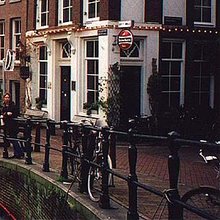 The wooden horse is dragged inside the gates of Troy.
The wooden horse is dragged inside the gates of Troy.I also liked how the film brought out the heroic code. There was no great hope of a pleasant afterlife, so the best one could do was win glory in this life and achieve a sort of immortality in that way eg by excellence in fighting. In the film (and Homer's poem), Achilles lives out this principle most of all. As a loner on the edge of the Greek army, not submitting to King Agamemnon's authority, he is almost solely concerned with his own glory. Brad Pitt was fairly convincing as Achilles, though the original character is more brooding, distant and fierce. (Hector, the Trojan prince, is perhaps more of a good person in the modern (and Christian) sense in that he fights to defend his city (Troy) and ultimately his family, though also admittedly his own 'honour'.)

Brad Pitt as Achilles, the 'hero' of the Iliad: an awesome warrior, subservient to none

Hector in 'Troy' (2004) - the 'good' guy
The heroic code was transferred a few hundred years later to athletes in the ancient Olympics (founded 776BC by tradition) and other games, and the spirit of vying for glory lives on in modern athletics (cf the current European championships) and we find it too in the arts, not to mention among footballers and pop stars. In a sense the ancient Greeks invented the modern celebrity....
 a laurel wreath, the prize for winning an event in ancient Greek games
a laurel wreath, the prize for winning an event in ancient Greek games ancient Greek runner
ancient Greek runnerThe problem with the heroic code, in ancient Greek and other cultures, is that it was egotistical and costly to others eg in war, through death, loss and injury. The same principle occurred in ancient Rome, where self-promoting generals went out conquering other peoples, to win glory and lots of booty for themselves.
 The Roman triumph: a general enjoys his hour of glory as he parades through the streets of Rome.
The Roman triumph: a general enjoys his hour of glory as he parades through the streets of Rome.(Yes, his face was painted red: to imitate the god Mars.)
 the book 'Private Adam'
the book 'Private Adam'
 Eddie Izzard's multi-marathon jog: an ultimate hero of our time ?
Eddie Izzard's multi-marathon jog: an ultimate hero of our time ?Perhaps it's inevitable we've ended up with a mix of striving for excellence and serving others as our ideal: you need to make efforts to have major admirable achievements, but we've learned it's better to help than to harm others.
 What sort of hero would you be ?
What sort of hero would you be ?



 The toys tumble out of the box into a new adventure in Toy Story 3
The toys tumble out of the box into a new adventure in Toy Story 3








